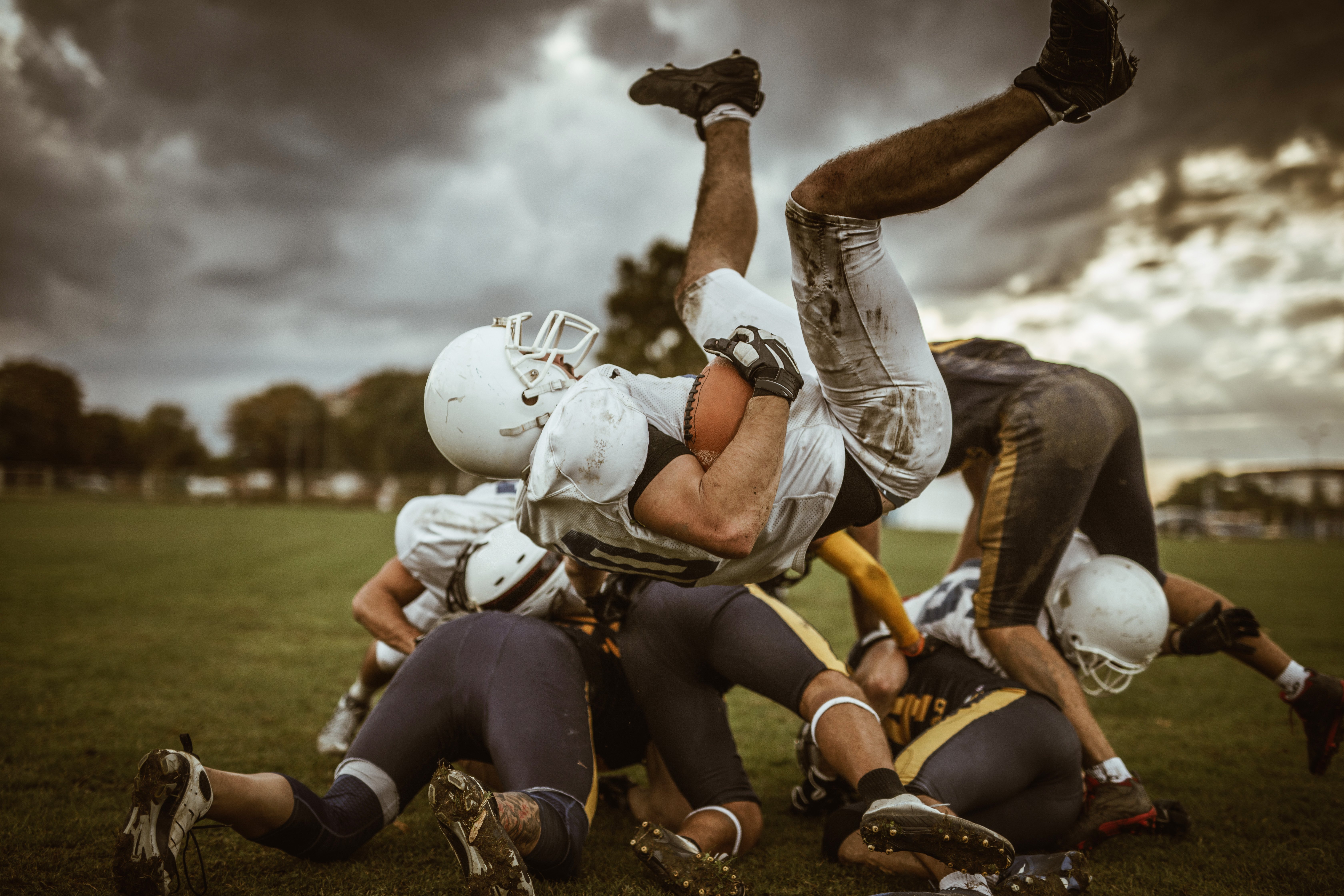
Over the last decades many research centers have developed head impact sensing devices to better understand the true nature of concussions. How common are concussions in football and how hard are the hits in different sports?
Concussions are caused by violent movements of the head. During these movements the brain smashes into the skull and chemical reactions occur that results in symptoms like headaches, dizziness, disorientation and ringing in the ears. Concussions are versions of Traumatic Brain Injury (TBI) which is intensively debated in the military and in health care (falls, assaults and motor vehicle accidents). But up until recently, we didn’t know much about sports head injuries. The NFL was early in responding to the findings from brain researchers, as shown in the movie “Concussion”.
We now know that concussions are more common in certain sports, like Football, Ice hockey and Lacrosse but without specific data on these impacts it has been difficult for players and parents to know how concerned they should be.
A paramount study in the field of sports concussions is the one from Virginia Tech from 2013, called the “Head Impact Exposure in Youth Football”. The researchers used accelerometers placed in the helmets of the players and standing on the side lines they could measure the head impact. The findings were shocking: Youth players (age 7-8 years) had on average 107 hits to the head/season. Half of the hits were at 15G and 5% at 40G. In comparison, taking off in a rocket ship generates 10G. In high school players (14-18 years) the numbers were even more alarming: on average a player had 565 hits to the head/season, half of which were at 21G and 5% at 56G. Not surprisingly, the football concussion stats became worse when college players were measured: on average 1,000 significant hits to the head/season, 5% of which were at 63G. The vast majority of these hits do not result in a clinically diagnosed concussion but of course, every hit matters. These football concussion stats have been confirmed by other studies so there is no doubt that intense sports like football has a problem.
One can certainly argue that different positions in a team are exposed differently and that the technique matters. A recommendation from Virginia Tech and other studies is an athlete should limit hits that result in head impact in practice. One could also argue that rules of the games should change as well. It matters how hard you hit and whether the other player is aware of the hit that is coming. We have started to see some discussion about this in football and in other sports. For example, in ice hockey there is a limit to how and from what angle you can check another player. There are other sports that have not changed; fights for example. In soccer, you can still head the ball even though we know it can cause concussions long-term.
Head impact in many sports are common and just because you may not suffer a concussion, over time, you can incur life effecting symptoms. Many players in tough sports suffer depression and effects on their quality of life. There is a link between post-concussion syndrome and decreased human functions later in life. We must continue to monitor what happens to our players and players must think beyond their sports career.
Contact me or anyone on the SISU team if you want to discuss. We focus on safety in sports; dental and “mental”!
Dr. Jan Akervall, M.D., Ph.D.
Founder and Inventor
SISU Mouthguards
